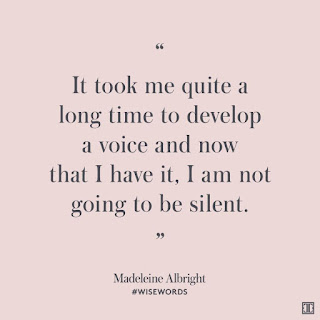Last 2 Stages of a Relationship: Are You There Yet?
On the last blog, I talked about the first three Stages of a Relationship :
Stage One - Passion and Chemistry
Stage Two - Power and Control
Stage Three - Problem Solving and Compromise
We are going to move on the final two stages of a relationship, but before we do I just want to remind everyone that these stages typically occur in the order that I am giving them to you. However, because of transitions or crises or changes in your relationship, you will move back and forth into these stages and you may stay in some stages longer than you do others. This is to be expected.
Let's move on to Stage Four - Co-creativity and Mutuality. Couples typically start to settle into this phase after they have been together for some time or at least after they have worked through Stage Two and are able to integrate Stage Three into their relationship with a level of ease. It is my opinion that at the root of Stage Four is a key ingredient to healthy relationships - Respect.
Let me explain. Co-creativity means that each partner is able to pursue his/her personal and
 |
| Co-Creativity |
 |
| Mutuality |
This process of Co-Creativity blends in naturally with Mutuality.This means as partners are pursuing their individual personal and professional goals, each one is consistently taking stock of the demands and sacrifices of how their choices are impacting their partners and their families. It means that in the process of giving to ourselves (which is important) that we are keeping a pulse on how we are giving to or taking from our partner. We move from a mindset of self- benefit to mutual benefit - thus mutuality. This stage is hard work! But when this mindset starts to take hold and come naturally, you will know it by the deep respectful connection you feel towards one another.
Stage Five - Compassion and Interdependence. This stage is most often associated with couples who are in the later season of their lives together, but again, because of transitions, illnesses, or even trauma, many partners move into this stage prematurely. This is a test of our Compassion for one another. This is a time in a relationship where one partner becomes more dependent on the other, or becomes completely dependent upon the other. This is when one partner takes on the role of caregiver for the other. There are so many variables that come into play here. For our discussion, I want to share that this can be a very challenging and stressful stage for couples.When levels of independence diminish as the need for Interdependence increases, feelings of anger, resentment, and guilt are quite common on the part of the caregiver. Couples experience the losses of their relationship and sometimes one or both of them need time to grieve what is no longer.
 |
| Interdependence |
However, with time and often with assistance or support, healthy couples will move forward as they re-discover a quiet strong Compassion for one another and they will find deeper meaning in their relationship as they re-experience the closeness of Interdependence.
In closing, when I am writing about couples and relationships, I often think of that famously quoted line of Jack Nicholson's...You make me want to be a better man... and I want to challenge all of us by changing it just a bit...
No matter what stage we are in, what can each of us do to be a better partner?
Let's start today. Let's start now.
~ ~ ~ ~ ~ ~ ~ ~
I want to leave you with two short easy exercises for communication. Give yourselves about 20 minutes or so for these two exercises.
1. Feel - Why - Need exercise. Sit down, face to face, with no technology. Kids are in bed! Do not interrupt each other. State what you are feeling, why you are feeling this way, and what you need from your partner. Avoid the word 'you', if possible. Address this issue first before you go on to another one! Here is an example:
I am feeling very resentful. Work is taking up more and more time of our alone time. I need more time together. Let's talk about some ways we can make that happen.
2. Problem Solve - Compromise exercise. Each partner takes a few minutes to come up with 2-3 possible solutions to the problem. Then, discuss the pros and cons to each solution! Do throw any suggestions out! Narrow down your options to two; then both of you decide what will work best. Try it for a week or two; then check back in to see what is working and what is not.
For more help, consider this little e-book! It's filled with exercises! Betrayal-Proof Your Relationship: What Couple Need To Know & Do
Next time, When one partner relapses or returns to unhealthy behaviors, how do couples move forward?




Comments
Post a Comment